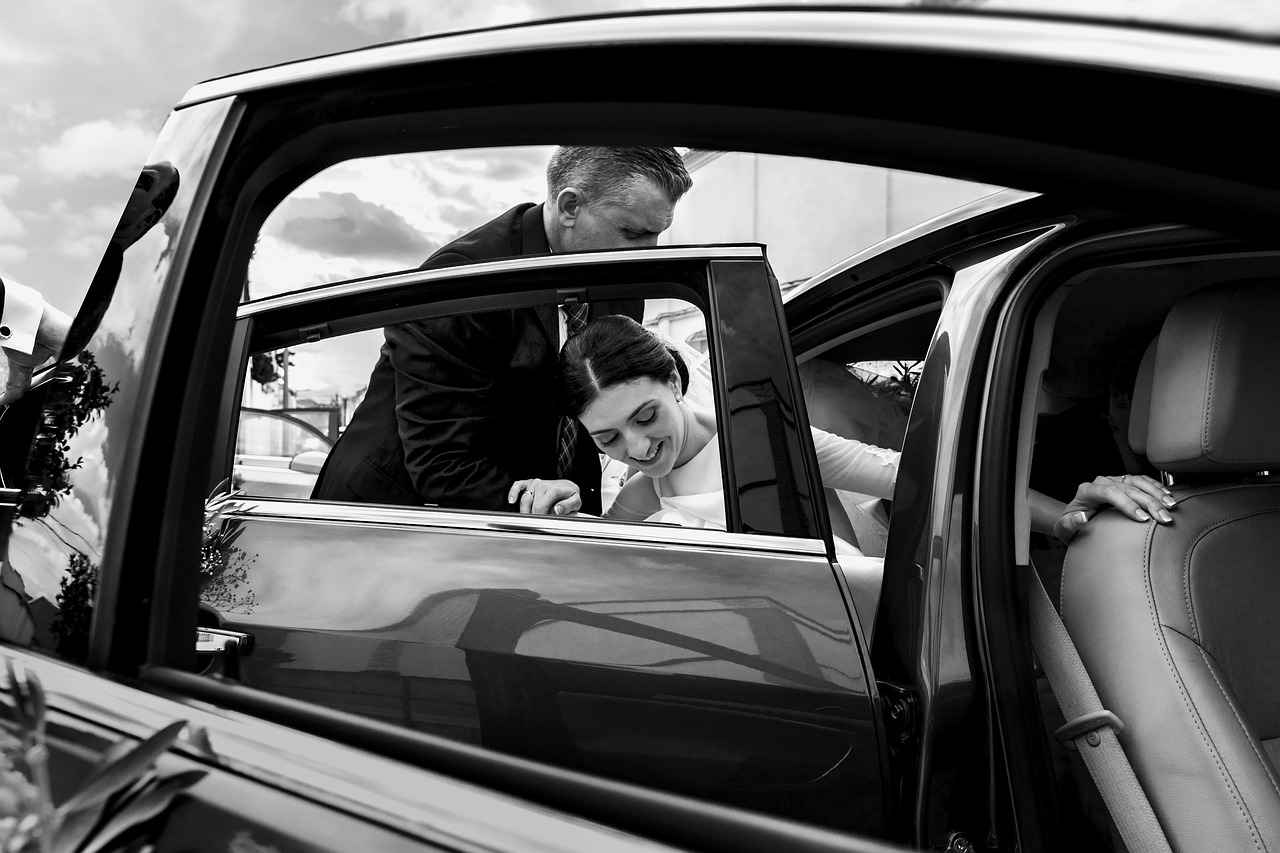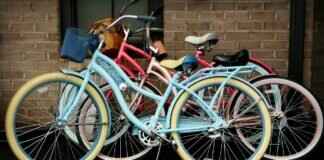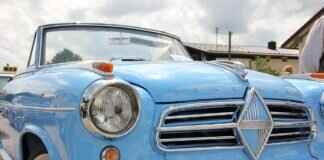This article delves into the creative world of custom t-shirts for weddings, showcasing how unique designs can make your special day unforgettable for both you and your guests.
Why Choose Custom T-Shirts for Weddings?
Custom t-shirts provide a personal touch to weddings, allowing couples to express their individual style and theme. They also serve as a fun and memorable keepsake for guests, making them feel included in the celebration.
Popular Themes for Wedding T-Shirts
- Rustic and Vintage Designs: These designs often feature earthy colors and classic fonts, perfect for outdoor or barn weddings.
- Floral Patterns and Graphics: Incorporating floral elements can enhance the romantic vibe, appealing to couples celebrating love in a natural setting.
- Typography and Quotes: Heartfelt quotes or personalized typography can create a statement piece that guests will cherish long after the event.
- Modern and Minimalist Styles: For a sleek look, minimalist t-shirts with simple designs or monograms can add an elegant touch to any wedding.
Choosing the Right Fabric for Comfort
Comfort is key, especially for long wedding days. Choosing breathable and soft materials ensures guests feel good while celebrating.
- Cotton vs. Blends: Cotton t-shirts are soft and breathable, while blends offer durability and stretch.
- Eco-Friendly Options: Couples can select organic or recycled materials, aligning with sustainable values while providing stylish choices.
Designing Your Custom T-Shirts
Creating a unique design involves considering colors, fonts, and graphics that align with the wedding theme.
- Using Online Design Tools: User-friendly platforms allow couples to create custom t-shirts from scratch or choose from templates.
- Collaborating with Local Artists: Working with local artists can add a personalized touch, incorporating unique artwork that reflects the couple’s love story.
Budgeting for Custom Wedding T-Shirts
Understanding costs is essential for effective budgeting, ensuring couples can incorporate this fun element without overspending.
- Factors Influencing Cost: Fabric choice, design complexity, and printing techniques can significantly impact overall costs.
- Finding Affordable Options: Exploring bulk ordering or local printing services can help couples find budget-friendly options without compromising quality.
How to Distribute T-Shirts on the Wedding Day
- Pre-Ceremony Gifts: Presenting t-shirts before the ceremony allows guests to wear them during the event.
- Post-Ceremony Photo Opportunities: Distributing t-shirts after the ceremony can create fun photo opportunities, capturing lasting memories.
Conclusion: Making Your Wedding Unforgettable with Custom T-Shirts
Custom t-shirts can add a personal and memorable touch to weddings, offering a unique way to celebrate love and create lasting memories for couples and their guests.

Why Choose Custom T-Shirts for Weddings?
Custom T-shirts for weddings are becoming increasingly popular, offering couples a unique way to showcase their personalities and celebrate their love. These personalized garments not only serve as a creative expression of the couple’s style but also provide guests with a fun and memorable keepsake from the event. In this section, we will explore the reasons why custom t-shirts are an excellent choice for weddings.
- Personalization: Custom t-shirts allow couples to incorporate their names, wedding date, or a meaningful quote, making each shirt a special memento for guests.
- Theme Coordination: T-shirts can be designed to match the wedding theme, whether it’s rustic, vintage, modern, or whimsical, enhancing the overall aesthetic of the celebration.
- Comfort: Weddings can be long events, and comfortable attire is essential. Custom t-shirts made from soft, breathable fabrics ensure that guests feel at ease throughout the day.
- Fun Factor: Providing guests with custom t-shirts adds an element of fun to the wedding. Guests can wear them during the ceremony or reception, creating a lively and festive atmosphere.
- Photo Opportunities: Matching t-shirts create a cohesive look for group photos, making for great memories captured in unique attire that guests will cherish.
- Affordability: Custom t-shirts can be a cost-effective way to provide guests with a keepsake. When ordered in bulk, they can be more affordable than traditional wedding favors.
In conclusion, custom t-shirts are a fantastic addition to weddings, offering a blend of personalization, comfort, and fun. They create lasting memories for both the couple and their guests, making the special day even more unforgettable.

Popular Themes for Wedding T-Shirts
When it comes to planning a wedding, couples often seek ways to make their special day unique and memorable. One creative avenue that has gained popularity is the design of custom t-shirts. These shirts not only serve as a fun keepsake for guests but also reflect the couple’s personal style and wedding theme. From rustic to modern, the possibilities are endless, allowing couples to express their vision and enhance the overall ambiance of their celebration.
| Theme | Description | Design Ideas |
|---|---|---|
| Rustic | Emphasizes natural elements and a cozy atmosphere, perfect for outdoor or barn weddings. | Earthy colors, vintage fonts, and nature-inspired graphics. |
| Modern | Features sleek designs and minimalist aesthetics, ideal for contemporary celebrations. | Simple lines, bold colors, and monograms for a chic look. |
| Beach | Captures the essence of seaside nuptials with vibrant colors and playful motifs. | Ocean-themed graphics, tropical colors, and fun fonts. |
| Vintage | Draws inspiration from past eras, adding a nostalgic touch to the wedding. | Classic typography, retro colors, and old-fashioned illustrations. |
By choosing a theme that resonates with their relationship, couples can design t-shirts that not only reflect their personalities but also create a cohesive look throughout the wedding. For instance, a rustic theme might feature earthy tones and floral patterns, while a modern approach could lean towards sleek, minimalist designs. This attention to detail makes the t-shirts not just apparel, but a celebration of love and unity.
Ultimately, the right theme for wedding t-shirts can enhance the overall experience for both the couple and their guests, creating lasting memories that go beyond the day itself.
Rustic and Vintage Designs
have become increasingly popular in the world of weddings, especially for couples looking to create a memorable and charming atmosphere. These themes often evoke feelings of nostalgia, drawing inspiration from nature and classic aesthetics. The color palette typically includes earthy tones such as browns, greens, and soft pastels, which beautifully complement outdoor settings or barn venues.
One of the defining features of rustic and vintage designs is the use of classic fonts. Fonts that mimic handwritten scripts or vintage typefaces can add a personal touch to invitations, signage, and, importantly, custom t-shirts. These elements work together to create a cohesive look that reflects the couple’s personality and story.
Incorporating floral patterns into the design can further enhance the romantic vibe. Whether it’s delicate wildflowers or bold blooms, floral graphics can seamlessly blend with the rustic theme, making the t-shirts not just a fashion statement but also a beautiful keepsake for guests.
Furthermore, the use of heartfelt quotes or personalized messages on the t-shirts can create lasting memories. A carefully chosen phrase can resonate with guests, allowing them to carry a piece of the couple’s love story with them long after the event has concluded.
As couples strive to make their weddings unique, stand out for their ability to create a warm and inviting atmosphere. By thoughtfully selecting colors, fonts, and graphics, couples can ensure their custom t-shirts are not only stylish but also meaningful, adding an unforgettable touch to their special day.
Floral Patterns and Graphics
have become increasingly popular in wedding t-shirt designs, particularly for couples who wish to infuse a sense of romance into their rustic-themed celebrations. These patterns not only add visual appeal but also evoke emotions associated with love and nature, making them an ideal choice for weddings.
When incorporating floral patterns, couples can choose from a variety of styles, including watercolor florals, vintage botanical prints, or whimsical doodles. Each style offers a unique aesthetic that can complement the overall wedding theme. For instance, watercolor designs can create a soft, dreamy effect, perfect for outdoor settings surrounded by nature.
Additionally, floral graphics can be customized to reflect the couple’s personal story. For example, using flowers that hold special significance, such as the bride’s favorite blooms or flowers that symbolize their relationship, can make the t-shirts even more meaningful. This thoughtful approach allows couples to express their individuality while enhancing the romantic ambiance of their wedding.
Moreover, the use of floral patterns can also serve practical purposes. They can unify the wedding party’s attire, providing a cohesive look that ties together various elements of the celebration, from invitations to table settings. This cohesive design not only enhances the visual appeal but also creates memorable photo opportunities for guests.
In conclusion, floral patterns are an excellent choice for couples looking to enhance the romantic aspect of their rustic wedding designs. By thoughtfully selecting floral graphics that resonate with their love story, couples can create a unique and memorable experience for themselves and their guests.
Typography and Quotes
play a vital role in creating memorable and personalized wedding t-shirts. These elements not only reflect the couple’s unique style but also convey heartfelt sentiments that resonate with guests.
When selecting quotes for wedding t-shirts, consider phrases that encapsulate the essence of love and commitment. Popular choices include:
- “Together is a wonderful place to be.”
- “Love is not just a feeling; it’s a choice.”
- “Happily ever after starts here.”
Incorporating these quotes into the design can create a lasting impression. Personalized typography, such as the couple’s names or wedding date, can further enhance the t-shirt’s significance. Custom fonts can add a touch of elegance or playfulness, depending on the wedding theme.
Moreover, utilizing heartfelt quotes can transform a simple t-shirt into a cherished keepsake. Guests are likely to appreciate the thoughtfulness behind the designs, fostering a sense of connection to the couple’s special day. This personal touch can evoke emotions and create lasting memories, making the t-shirts not just clothing but a symbol of shared experiences.
In addition to quotes, consider integrating graphics that complement the text. For instance, floral designs or illustrations that represent the couple’s journey can enhance the overall aesthetic. This combination of typography and visuals can create a stunning statement piece that guests will treasure long after the event.
Ultimately, the thoughtful use of typography and quotes on wedding t-shirts not only serves as a fun element of the celebration but also encapsulates the love story of the couple, making it a truly memorable experience for everyone involved.
Modern and Minimalist Styles
are increasingly becoming a popular choice for couples looking to create a sophisticated and chic atmosphere for their wedding. These styles emphasize simplicity and elegance, allowing couples to express their unique personalities without overwhelming their guests with excessive designs.
For couples who appreciate a sleek aesthetic, minimalist t-shirts featuring simple designs or monograms can create an elegant statement at any wedding. The beauty of minimalism lies in its ability to convey a message without unnecessary embellishments, making it a perfect fit for contemporary wedding themes.
When choosing minimalist t-shirts, consider the following:
- Color Palette: Opt for neutral tones or soft pastels that complement the wedding’s color scheme. Shades like white, beige, and light gray can serve as a beautiful backdrop for understated designs.
- Font Selection: Choose clean and modern fonts for any text or monograms. A sans-serif typeface can enhance the minimalist vibe and ensure readability.
- Graphics: If incorporating graphics, keep them simple. Think geometric shapes or subtle illustrations that add interest without cluttering the design.
Minimalist t-shirts can also be a great way to unify the wedding party. By providing matching t-shirts for the bridal party, you create a cohesive look that is both stylish and comfortable. Guests will appreciate being part of a well-thought-out design that aligns with the couple’s vision.
Furthermore, these t-shirts can serve as lasting keepsakes for guests, reminding them of the special day without being overly flashy. After the wedding, attendees can wear these shirts casually, keeping the memories alive in their everyday lives.
In conclusion, modern and minimalist styles for wedding t-shirts offer couples a unique way to express their love and style. By focusing on simplicity and elegance, these designs can enhance the overall wedding experience, making it memorable for both the couple and their guests.
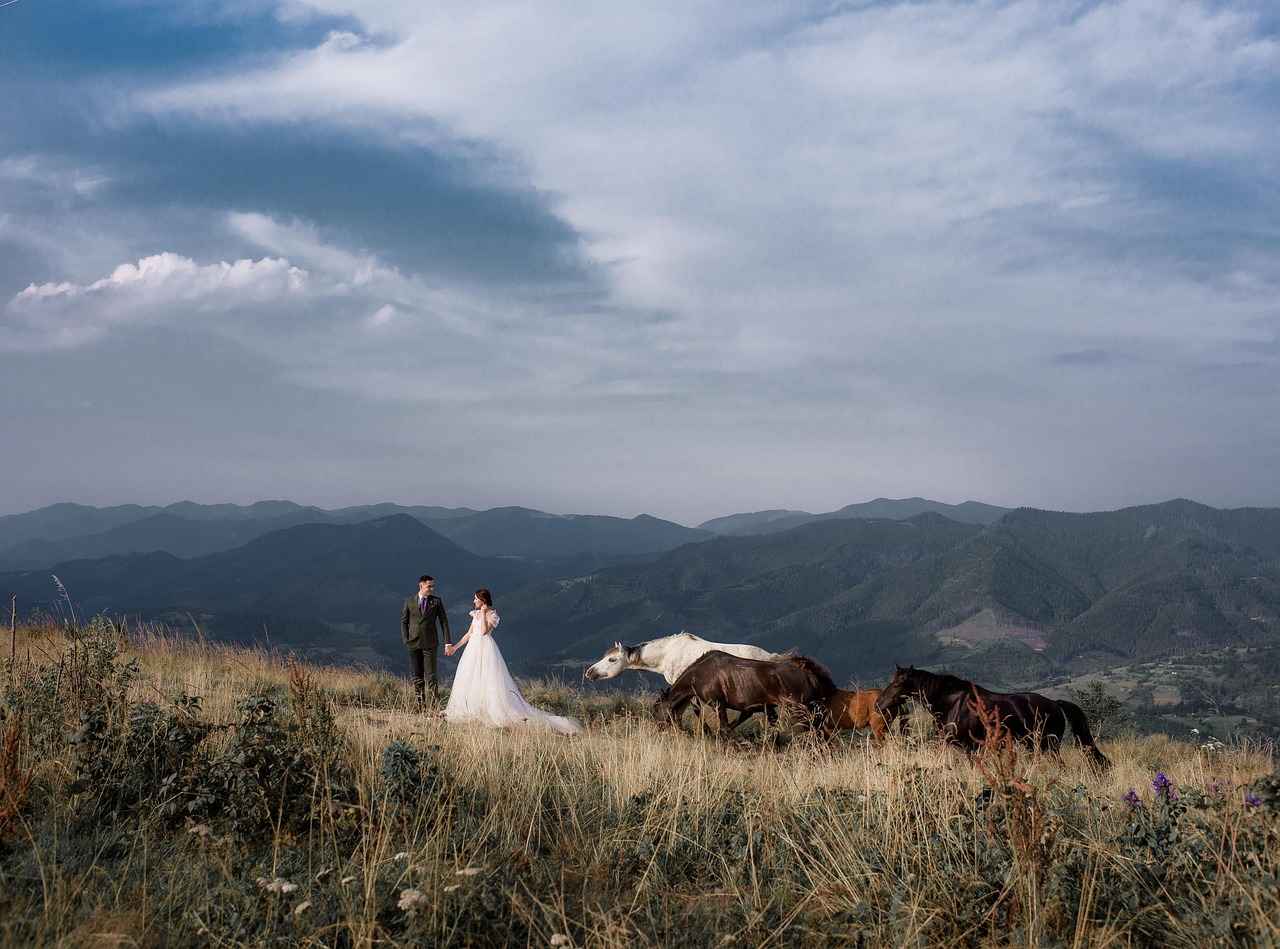
Choosing the Right Fabric for Comfort
The fabric of a t-shirt is not just a matter of aesthetics; it plays a vital role in ensuring comfort during long wedding days. As guests celebrate, breathable and soft materials can significantly enhance their experience, allowing them to fully enjoy the festivities without discomfort.
When selecting t-shirt fabrics, consider the following options:
- Cotton: Known for its softness and breathability, cotton is a popular choice for wedding t-shirts. It allows for good air circulation, keeping guests cool and comfortable throughout the day.
- Polyester Blends: These blends combine the softness of cotton with the durability of polyester. They offer stretchability and are resistant to wrinkles, making them ideal for active celebrations.
- Eco-Friendly Materials: For couples who prioritize sustainability, selecting t-shirts made from organic cotton or recycled materials can align with their values while ensuring comfort for guests.
In addition to fabric type, the weight of the material is equally important. Lightweight fabrics are preferable for warm weather, while slightly heavier options may be suitable for cooler evenings. Always consider the climate of the wedding day and the venue when making your choice.
Ultimately, the goal is to provide a comfortable experience for all attendees. By choosing the right fabric, couples can ensure that their guests feel great while celebrating love and joy on their special day.
Cotton vs. Blends
Cotton t-shirts are renowned for their softness and breathability, making them a popular choice for casual wear and special events alike. Their natural fibers allow for excellent airflow, keeping the wearer cool and comfortable, especially during warm weather. This makes them an ideal option for weddings, where guests may be on their feet for extended periods, enjoying the festivities.
On the other hand, cotton blends—which typically combine cotton with synthetic fibers such as polyester or spandex—offer a range of additional benefits. These blends can enhance the durability of the fabric, making it more resistant to wear and tear. This is particularly advantageous for wedding t-shirts that will be worn during a lively celebration and potentially washed multiple times afterward.
Moreover, the inclusion of synthetic fibers can provide stretch, allowing for a more comfortable fit that accommodates various body types. This is essential for ensuring that all guests feel confident and at ease in their custom t-shirts, regardless of their shape or size. The flexibility of cotton blends also makes them suitable for a variety of activities, whether guests are dancing, mingling, or participating in outdoor games.
In addition to comfort and durability, cotton blends can also offer enhanced moisture-wicking properties. This means that they can draw sweat away from the body, helping guests stay dry and comfortable throughout the event. This is particularly beneficial for summer weddings or outdoor ceremonies where temperatures can rise.
Ultimately, the choice between cotton and cotton blends depends on the specific needs of the wedding and the preferences of the couple. By considering factors such as comfort, durability, and style, couples can select the perfect fabric for their custom t-shirts, ensuring a delightful experience for their guests.
Eco-Friendly Options
have become a significant consideration for couples planning their weddings, especially those who prioritize sustainability. By choosing organic or recycled materials for custom t-shirts, couples can align their wedding attire with their eco-conscious values while still ensuring a stylish and memorable experience for their guests.
Opting for organic cotton is a popular choice, as it is grown without harmful pesticides or synthetic fertilizers. This not only benefits the environment but also provides a soft and breathable fabric that is comfortable for guests to wear throughout the day. Additionally, organic cotton t-shirts are often produced using sustainable practices, making them a responsible choice for environmentally aware couples.
Another excellent option is t-shirts made from recycled materials. These shirts are crafted from post-consumer waste, such as plastic bottles or discarded textiles, helping to reduce landfill waste and minimize the carbon footprint associated with new garment production. By choosing recycled t-shirts, couples can make a positive impact on the planet while offering their guests a unique and thoughtful gift.
| Material Type | Benefits |
|---|---|
| Organic Cotton | Soft, breathable, and grown without harmful chemicals. |
| Recycled Materials | Reduces waste and carbon footprint, creating a unique product. |
Incorporating these into wedding planning not only enhances the overall theme but also sends a powerful message about sustainability to guests. Couples can feel proud knowing that their choices contribute positively to the environment while still providing stylish and memorable keepsakes.
Ultimately, selecting organic or recycled materials for custom t-shirts is a meaningful way for couples to express their commitment to sustainability on their special day, ensuring that their wedding is not only beautiful but also environmentally responsible.

Designing Your Custom T-Shirts
is an exciting journey that allows couples to infuse their personalities into their wedding celebrations. To create a truly unique design, it is essential to consider a variety of elements such as colors, fonts, and graphics that resonate with the wedding theme. This ensures that the t-shirts not only look visually appealing but also hold significant meaning for both the couple and their guests.
When choosing colors, think about the overall palette of the wedding. For example, if the wedding theme is rustic, earthy tones like greens, browns, and creams may be ideal. In contrast, a modern wedding may call for bold colors such as navy, gold, or blush. The right colors can evoke emotions and create a cohesive look throughout the event.
Fonts also play a crucial role in the design process. Select typography that complements the wedding style. For a vintage theme, consider using elegant script fonts, while modern weddings may benefit from sleek, sans-serif fonts. The choice of font can enhance the t-shirt’s message and overall aesthetic.
Graphics are another important aspect of t-shirt design. Incorporating symbols that reflect the couple’s journey, such as their initials or a significant date, can make the t-shirts more personal. Additionally, using floral graphics or themed illustrations can add a charming touch that aligns with the wedding’s atmosphere.
Finally, it is advisable to utilize online design tools or collaborate with local artists to bring these elements together seamlessly. Many platforms offer templates that couples can customize, making the design process straightforward and enjoyable. Alternatively, local artists can provide unique illustrations that tell the couple’s love story.
In conclusion, creating custom t-shirts for weddings is a wonderful way to express individuality and celebrate love. By thoughtfully considering colors, fonts, and graphics, couples can design t-shirts that are not only visually stunning but also meaningful keepsakes for their guests.
Using Online Design Tools
has revolutionized the way couples approach custom t-shirt creation for their weddings. With the rise of technology, various online platforms now provide user-friendly design tools that empower couples to unleash their creativity. These tools not only simplify the design process but also offer an array of options to cater to different styles and preferences.
Many platforms feature intuitive interfaces that allow users to either start from scratch or select from a wide range of pre-made templates. This flexibility is particularly beneficial for couples who may not have extensive design experience but still want to create something that reflects their unique love story. By simply dragging and dropping elements, users can customize colors, fonts, and graphics to align with their wedding theme.
Moreover, these online tools often include a library of clipart and images that can enhance the overall design. Couples can easily incorporate symbols or illustrations that are meaningful to them, making the t-shirts not just a piece of clothing, but a cherished keepsake. Additionally, many platforms allow for the inclusion of personalized text, such as the couple’s names, wedding date, or a special quote, adding a personal touch that guests will appreciate.
For those concerned about the quality of the final product, reputable online design tools often provide a preview feature. This enables users to see how their design will look on the actual t-shirt before placing an order. This step is crucial for ensuring satisfaction with the final result.
In conclusion, using online design tools for creating custom wedding t-shirts is an excellent way to combine creativity with convenience. Couples can express their individuality and provide guests with a memorable experience that celebrates their love in a fun and stylish way.
Collaborating with Local Artists
can transform the ordinary into the extraordinary when it comes to custom t-shirt designs for weddings. By partnering with talented local artists, couples can infuse their t-shirts with a personalized touch that tells their unique love story. This collaboration allows for the incorporation of custom illustrations, unique artwork, and even meaningful symbols that resonate with the couple’s journey together.
Local artists often have a deep understanding of the community’s culture and aesthetics, which can add a special flair to the designs. Engaging with these artists not only supports local talent but also provides couples with the opportunity to create something truly one-of-a-kind. Whether it’s a hand-drawn illustration of the couple’s first date location or a whimsical depiction of their favorite shared activities, the possibilities are endless.
Moreover, working closely with an artist can lead to a more interactive design process. Couples can share their vision and ideas, allowing the artist to bring their concepts to life in a way that reflects their personality and style. This collaborative effort can result in t-shirts that are not just garments but cherished keepsakes that guests will treasure long after the wedding day.
Additionally, collaborating with local artists can also be an eco-friendly choice. Many artists prioritize sustainable practices, using organic materials or environmentally friendly inks, which aligns with the values of couples looking to minimize their ecological footprint. This aspect of collaboration can further enhance the sentimental value of the t-shirts, making them a meaningful part of the wedding celebration.
In conclusion, partnering with local artists for custom t-shirt designs is a fantastic way for couples to showcase their love story while supporting the community. The personalized and artistic elements brought by local talent can create memorable pieces that will impress guests and serve as lasting reminders of the special day.

Budgeting for Custom Wedding T-Shirts
is a crucial aspect of planning a wedding that many couples overlook. Understanding the various costs associated with custom t-shirts ensures that couples can incorporate this fun and personal element into their celebrations without breaking the bank. Here’s a detailed look at how to budget effectively for custom wedding t-shirts.
When considering custom t-shirts, it’s important to evaluate the overall costs involved. Here are some key factors that can influence the final price:
- Fabric Choice: The type of fabric selected can significantly impact the cost. Cotton t-shirts are generally more affordable, while blends or specialty fabrics may cost more.
- Design Complexity: The intricacy of the design plays a vital role in pricing. Simple designs may be cheaper, while custom illustrations or complex graphics can increase the cost.
- Printing Techniques: Different printing methods, such as screen printing or direct-to-garment printing, come with varying costs. It’s essential to choose a method that fits your budget while ensuring quality.
To manage expenses, couples can explore affordable options like:
- Bulk Ordering: Ordering t-shirts in larger quantities often reduces the per-shirt price, making it a cost-effective choice for weddings with many guests.
- Local Printing Services: Collaborating with local printers can sometimes yield better prices and personalized service compared to online retailers.
Additionally, consider setting a budget limit for custom t-shirts as part of the overall wedding budget. This limit will help guide your decisions on fabric, design, and quantity.
In conclusion, understanding the costs associated with custom wedding t-shirts is essential for effective budgeting. By carefully considering factors like fabric, design complexity, and printing techniques, couples can enjoy the benefits of custom t-shirts while ensuring they stay within their financial means. This thoughtful approach allows for a unique and memorable addition to the wedding celebration.
Factors Influencing Cost
When it comes to custom t-shirts for weddings, several key factors can influence the overall cost. Understanding these elements is crucial for couples looking to incorporate unique apparel into their special day without exceeding their budget.
- Fabric Choice: The type of fabric selected can greatly affect the price of custom t-shirts. For instance, 100% cotton is typically more expensive than synthetic blends. Couples may opt for soft, breathable fabrics for comfort, especially during long wedding celebrations.
- Design Complexity: The intricacy of the design plays a significant role in pricing. Simple designs with minimal colors are usually cheaper than elaborate graphics or multi-color prints. Couples should consider whether they want a straightforward logo or a more detailed illustration that reflects their wedding theme.
- Printing Techniques: Different printing methods, such as screen printing, digital printing, or heat transfer, can vary in cost. Screen printing, while offering durability, may require a higher initial investment, especially for smaller orders. Digital printing, on the other hand, is ideal for intricate designs and smaller runs but might be pricier per shirt.
- Order Quantity: Bulk ordering can significantly reduce the cost per shirt. Many printing companies offer discounts for larger orders, making it more economical for couples to provide t-shirts for all their guests.
- Customization Options: Additional features like personalized names or dates can increase costs. While these custom touches add sentimental value, couples should weigh their importance against the overall budget.
In summary, being mindful of these factors can help couples make informed decisions when planning their custom t-shirts for weddings. By balancing quality, design, and budget, they can create memorable keepsakes that enhance their special day.
Finding Affordable Options
for custom wedding t-shirts is essential for couples looking to celebrate their special day without breaking the bank. With a little research and creativity, couples can discover budget-friendly solutions that meet their quality and design expectations.
One of the most effective ways to save money is by exploring bulk ordering. Many printing companies offer discounts for larger orders, which can significantly reduce the cost per t-shirt. Couples can take advantage of this by ordering shirts for not just themselves but also for their wedding party and guests. This approach not only saves money but also creates a cohesive look for the wedding.
Additionally, local printing services can be a great option for couples seeking affordable custom t-shirts. By supporting local businesses, couples may find more personalized service and potentially lower prices compared to larger online retailers. Local printers often have the flexibility to work closely with couples to design unique t-shirts that fit their vision and budget.
When considering printing options, it’s also important to compare different printing techniques. Techniques such as screen printing may be more cost-effective for larger orders, while digital printing might be better suited for smaller batches. Understanding the pros and cons of each method can help couples make informed decisions that align with their budget.
Furthermore, couples should not hesitate to negotiate prices or ask for discounts, especially when working with local printers. Many businesses are willing to negotiate, particularly if couples can offer them a larger order or refer other clients.
In conclusion, by exploring bulk ordering, local printing services, and understanding different printing techniques, couples can find affordable options for custom wedding t-shirts that still meet their quality and design expectations. This thoughtful approach not only helps in staying within budget but also adds a personal touch to the wedding celebration.

How to Distribute T-Shirts on the Wedding Day
Deciding when and how to distribute custom t-shirts during your wedding can significantly enhance the overall guest experience. This thoughtful gesture not only adds a fun element to the celebration but also creates lasting memories for everyone involved.
One effective strategy is to consider pre-ceremony distribution. By giving guests their custom t-shirts before the ceremony, you allow them to wear these unique pieces throughout the event. This approach fosters a sense of unity among guests, as they all don matching attire that aligns with your wedding theme. It also sets a joyful tone right from the start, making everyone feel included and excited.
Another option is to distribute the t-shirts post-ceremony. This can turn into a delightful surprise for your guests. After exchanging vows, handing out the t-shirts can create an opportunity for fun photo sessions. Imagine your guests posing with you, all wearing matching shirts that reflect your wedding theme—these photos will be cherished for years to come.
Additionally, consider the timing of the distribution. A dedicated time slot during the reception can ensure that guests are not distracted and can fully appreciate their new attire. You might even incorporate a fun activity, such as a group game or a toast, to further engage everyone while they wear their t-shirts.
Ultimately, the method of distributing custom t-shirts should align with your wedding’s overall vibe. Whether you choose to do it before or after the ceremony, the key is to make it a memorable experience that enhances the joy of the day. By thoughtfully planning this aspect, you can ensure that your guests leave with a piece of your celebration that they will treasure long after the wedding.
Pre-Ceremony Gifts
have become a delightful trend in modern weddings, particularly when it comes to custom t-shirts. Presenting these unique garments to guests before the ceremony not only adds a personal touch but also enhances the overall experience. When guests don the custom t-shirts, it creates a unified look that contributes to the celebratory atmosphere of the event.
One of the primary benefits of distributing t-shirts prior to the ceremony is the sense of community it fosters among attendees. Everyone wearing matching attire can strengthen the bond between guests, making them feel like part of a larger celebration. This can be especially impactful in larger weddings where guests may not know each other well.
Moreover, wearing custom t-shirts can serve as a fun icebreaker, encouraging guests to mingle and engage with one another. The shirts can feature funny quotes, personalized designs, or even the couple’s names and wedding date, making them a memorable keepsake. This not only adds to the enjoyment of the day but also provides guests with a tangible reminder of the occasion.
Additionally, having guests wear these t-shirts during the ceremony can create stunning visuals for photographers. The coordinated look can enhance group photos, ensuring that the wedding album captures the essence of the day. This cohesive appearance can also lead to creative photo opportunities that reflect the couple’s unique style.
In conclusion, presenting t-shirts as pre-ceremony gifts is a wonderful way to enhance the wedding experience. It allows guests to feel included, promotes interaction among attendees, and creates lasting memories that will be cherished for years to come.
Post-Ceremony Photo Opportunities
are an essential aspect of any wedding celebration, offering a chance for guests to engage in fun activities while creating lasting memories. Distributing custom t-shirts after the ceremony can elevate this experience, allowing everyone to showcase their unique style and personality through their attire.
When guests don matching t-shirts, it not only fosters a sense of unity but also enhances the overall aesthetic of the wedding photos. Imagine a group of friends and family, all wearing vibrant t-shirts that reflect the couple’s theme or a special message, posing together for the camera. These moments become cherished memories, captured in photographs that will be revisited for years to come.
Furthermore, the act of putting on these t-shirts can serve as a fun transition from the formal ceremony to the more relaxed celebration that follows. Guests can let loose, strike playful poses, and enjoy the festivities while sporting their custom attire. This lighthearted atmosphere is perfect for candid shots, ensuring that the photos are filled with genuine smiles and laughter.
To maximize the impact of this idea, couples can consider incorporating a photo booth with props that complement the t-shirts. This interactive element encourages guests to take creative photos, further enhancing the fun and excitement of the day. Additionally, sharing these photos on social media with a unique hashtag can help spread the joy beyond the wedding day itself, allowing friends and family to relive the moments together.
In conclusion, distributing t-shirts after the ceremony is not just a fun activity; it is a way to create unforgettable memories that guests will treasure. By embracing this idea, couples can ensure their wedding is not only a celebration of love but also a vibrant gathering filled with joy and laughter.
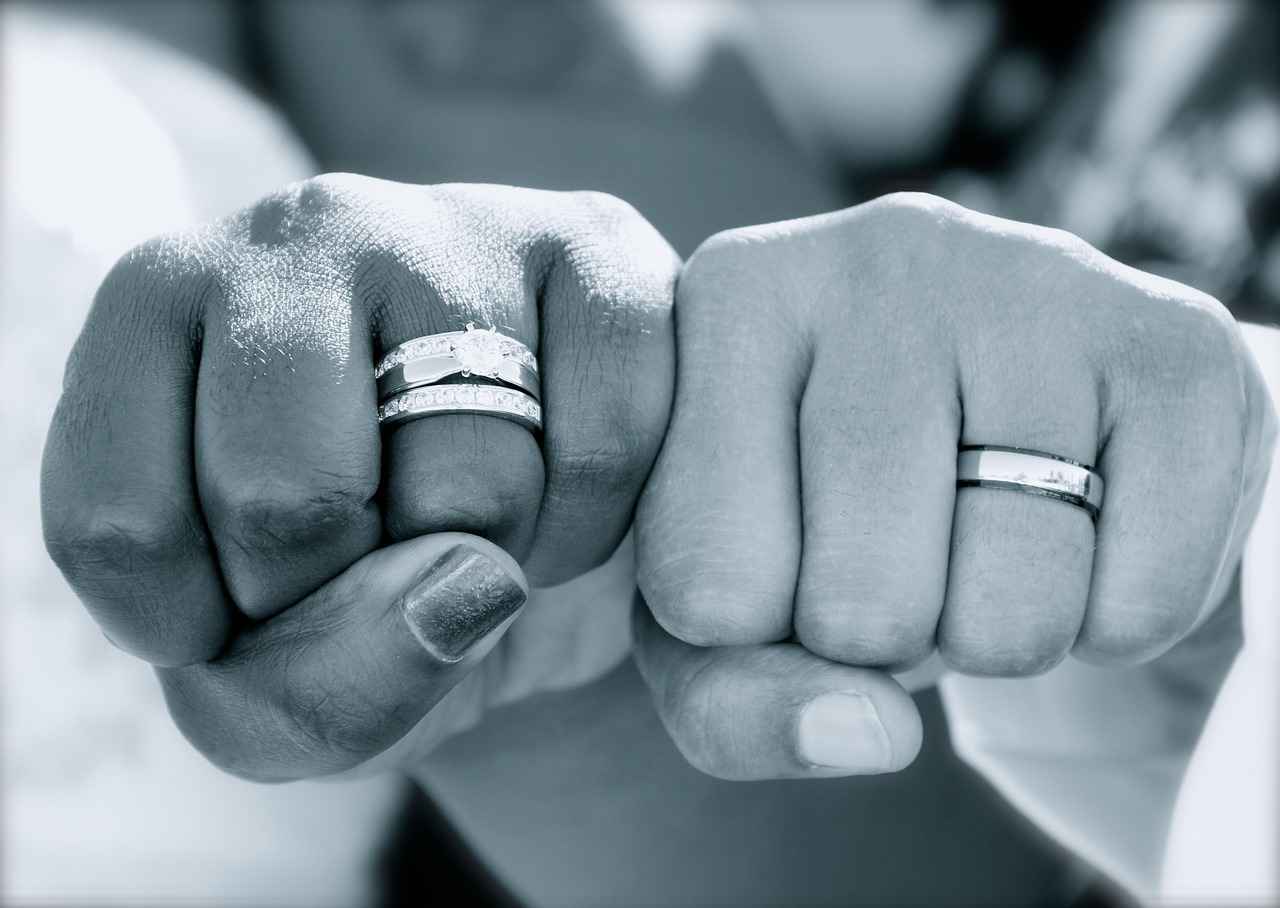
Conclusion: Making Your Wedding Unforgettable with Custom T-Shirts
Custom T-Shirts for Weddings: Unique Designs That Will Impress Your Guests
Custom t-shirts have emerged as a delightful trend in the wedding industry, offering couples a chance to showcase their personality and style while providing guests with a memorable keepsake. These t-shirts not only serve as a fun accessory but also as a creative way to celebrate the couple’s love story. By incorporating unique designs and thoughtful messages, custom t-shirts can transform a traditional wedding into an unforgettable experience.
Why Choose Custom T-Shirts for Weddings?
- They add a personal touch to the wedding festivities.
- Guests receive a meaningful keepsake to remember the day.
- Couples can express their individuality through design.
Popular Themes for Wedding T-Shirts
From whimsical to elegant, the themes for custom wedding t-shirts are as diverse as the couples themselves. Here are some popular themes:
- Rustic Charm: Earthy colors and vintage fonts create a nostalgic vibe.
- Modern Minimalism: Clean lines and simple designs appeal to contemporary tastes.
- Floral Elegance: Incorporating floral patterns enhances the romantic feel.
Choosing the Right Fabric for Comfort
The comfort of your guests should be a priority. Opting for soft, breathable fabrics ensures that everyone enjoys the celebration without discomfort. Popular choices include:
- Cotton: Soft and breathable, perfect for warm weather.
- Cotton Blends: Offers durability and stretch for all body types.
- Eco-Friendly Options: Sustainable materials align with modern values.
Designing Your Custom T-Shirts
Creating a memorable design involves careful consideration of colors, fonts, and graphics. Couples can use online design tools to bring their vision to life or collaborate with local artists for a personalized touch.
Incorporating custom t-shirts into your wedding celebration not only adds a unique flair but also creates lasting memories for both couples and their guests. By choosing thoughtful designs and comfortable fabrics, couples can ensure that their special day is both enjoyable and memorable.
Frequently Asked Questions
- What are the benefits of using custom t-shirts for weddings?
Custom t-shirts add a unique and personal touch to your wedding, allowing you to express your style while giving guests a fun and memorable keepsake from the day.
- How do I choose the right fabric for my wedding t-shirts?
Opt for breathable and soft materials like cotton for comfort during long wedding days. Cotton blends can offer added durability, while eco-friendly options align with sustainable values.
- Can I design my own t-shirts?
Absolutely! You can use online design tools or collaborate with local artists to create custom designs that reflect your wedding theme and personal style.
- What factors influence the cost of custom wedding t-shirts?
Cost can vary based on fabric choice, design complexity, and printing techniques. It’s essential to factor these in when budgeting for your t-shirts.
- When is the best time to distribute the t-shirts to guests?
Consider giving t-shirts as pre-ceremony gifts so guests can wear them during the event, or distribute them post-ceremony for fun photo opportunities!

